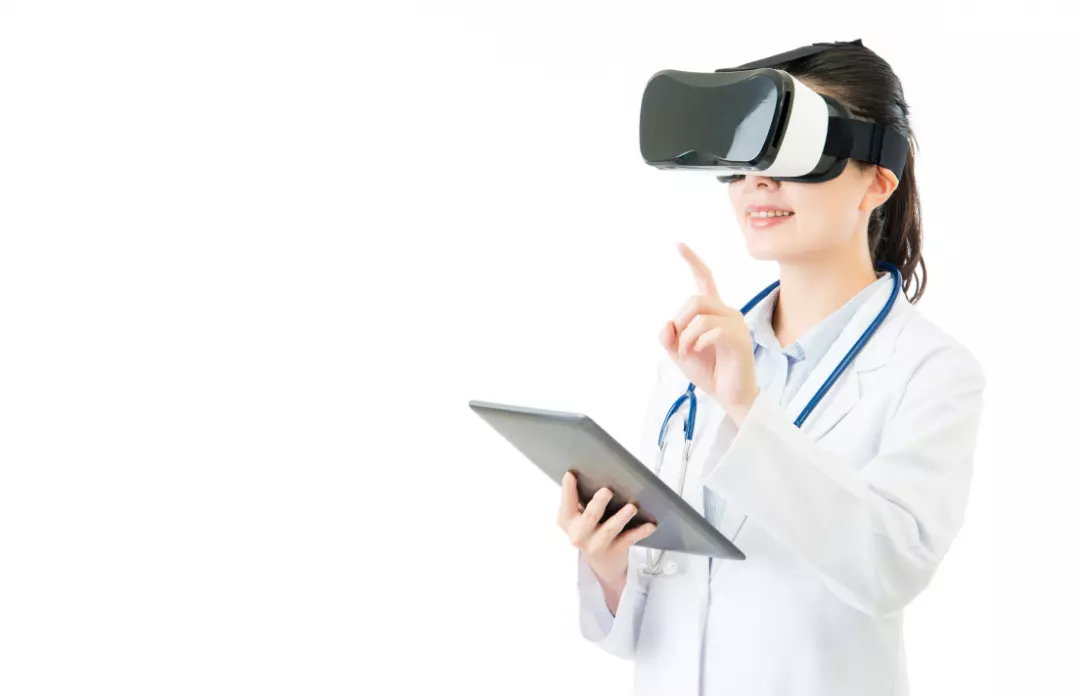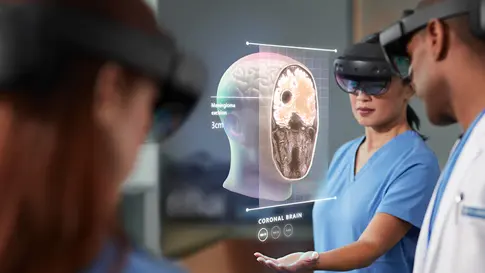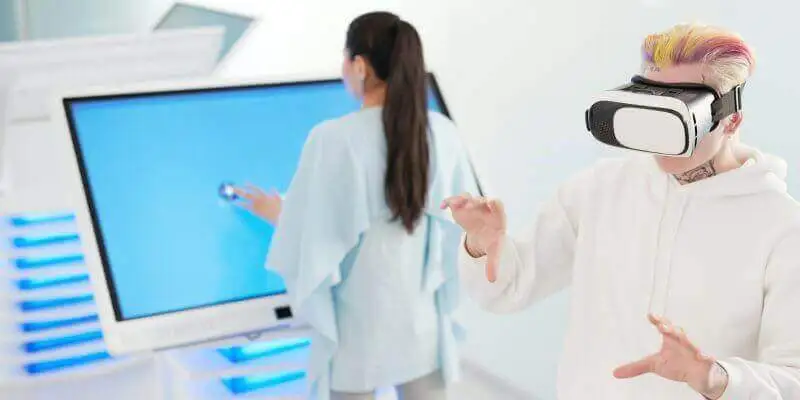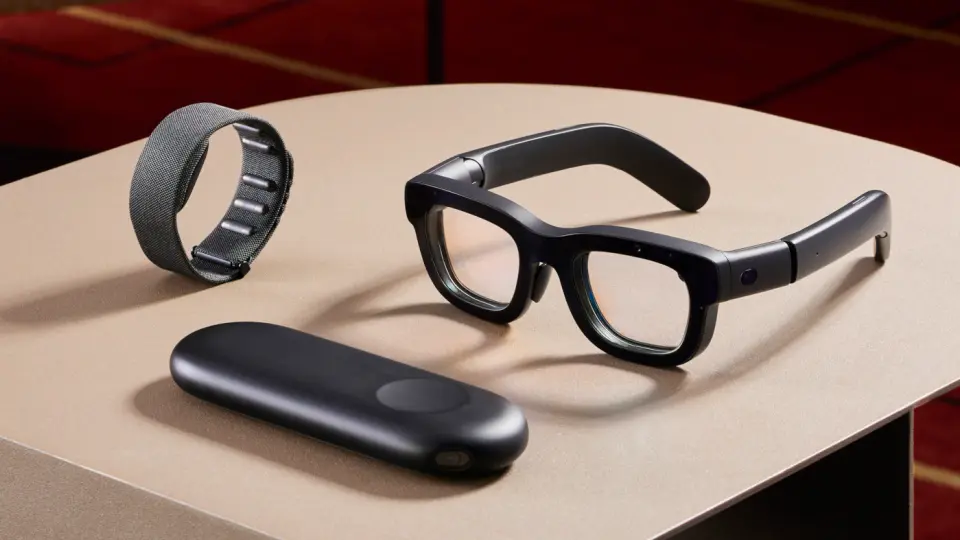Ethical Considerations in Augmented Reality (AR) and Virtual Reality (VR) - Assisted Medical Tourism
Posted on January 27, 2024 6 minutes 1221 words
Table of contents
Introduction to AR/VR in Medical Tourism
Augmented Reality (AR) and Virtual Reality (VR) are no longer just buzzwords in the tech community; they are revolutionizing industries, particularly healthcare. One intriguing application emerging at this intersection is AR/VR-assisted medical tourism, a concept that’s gaining traction globally. This fusion of cutting-edge technology with healthcare tourism opens a new frontier of possibilities – from remote consultations to virtual reality-based therapies in exotic locales. However, as with any innovative advancement, it brings its own set of ethical dilemmas. Understanding these ethical considerations is crucial for tech enthusiasts, healthcare professionals, and medical tourists alike. As we navigate this novel terrain, we must carefully weigh the benefits against potential risks to ensure that the adoption of AR/VR in medical tourism is not just innovative but also responsible and ethical.
The Rise of AR/VR in Medical Tourism
Embracing a New Era in Healthcare
The integration of Augmented Reality (AR) and Virtual Reality (VR) in medical tourism marks a significant milestone in healthcare innovation. These technologies, once predominantly associated with gaming and entertainment, are now at the forefront of medical advancements. They offer immersive experiences that are transforming patient care and medical training.
A Leap into Futuristic Healthcare
AR/VR technologies in medical tourism extend far beyond traditional boundaries. They enable patients to explore healthcare facilities virtually before even setting foot in a different country. Virtual tours of hospitals, interaction with medical staff, and understanding treatment procedures through VR simulations have become increasingly popular. This not only builds trust but also helps patients make more informed decisions about their healthcare journey abroad.
Beyond Borders: Expanding Access to Specialized Care
One of the most significant benefits of AR/VR in medical tourism is the democratization of access to specialized healthcare services. Patients from remote or less developed areas can now receive consultations and participate in pre-surgical planning sessions via VR, breaking geographical barriers. This technology also aids in post-operative care and rehabilitation, providing personalized, immersive therapies that can be accessed from the comfort of one’s home country.
The Impact on Healthcare Professionals
For healthcare professionals, AR/VR offers unparalleled opportunities for training and skill enhancement. Surgeons, for example, can simulate complex procedures, enhancing their skills without risk to real patients. This aspect of technology not only elevates the quality of medical care provided to tourists but also contributes to the overall advancement of global healthcare standards.
Ethical Challenges in AR/VR-Assisted Medical Tourism
1. Patient Privacy and Data Security
The use of AR and VR in medical tourism introduces complex challenges regarding patient privacy and data security. These technologies often require collecting and processing sensitive personal and medical information, raising significant concerns. For instance, VR consultations and AR-based treatments generate vast amounts of data that could be vulnerable to breaches. Imagine a scenario where a patient’s health data, collected during a VR-based therapy session, falls into unauthorized hands due to inadequate security measures. This not only violates patient confidentiality but also poses serious risks to their privacy and well-being.
Strategies for Mitigating Risks
To address these concerns, it is imperative to implement robust data protection protocols. Encrypting data, ensuring secure data transmission channels, and adhering to international standards for data privacy can help mitigate these risks. Additionally, educating patients about their data rights and the measures taken to protect their privacy is crucial in building trust.
2. Quality and Standardization of Care
Another ethical challenge lies in ensuring the quality and standardization of care delivered through AR/VR in medical tourism. With various healthcare providers adopting these technologies at different scales and capacities, there is a potential discrepancy in the quality of care offered. This variation can be particularly concerning when patients rely on virtual reality for critical aspects of their medical treatment. The lack of standardized regulations and protocols for AR/VR applications in healthcare can lead to inconsistent treatment outcomes.
Ensuring Consistent Quality
Developing international standards and best practices for the use of AR/VR in medical tourism is essential. Regular audits, certification programs for healthcare providers, and global collaboration among medical regulatory bodies can help establish and maintain high-quality care.
3. Access and Equity
The disparity in access to AR/VR technologies presents a significant ethical challenge. While patients from affluent backgrounds or developed countries might easily avail of these advanced treatments, those from less developed regions may be left behind. This technology-driven divide raises questions about equity in healthcare access. Furthermore, there is a risk that the focus on high-tech solutions might divert resources away from basic healthcare needs in underprivileged areas.
Bridging the Gap
To combat inequity, efforts must be made to ensure broader accessibility of AR/VR in healthcare. This includes subsidizing costs, developing low-cost AR/VR solutions, and partnering with governments and NGOs to extend these technologies to underserved regions. Additionally, integrating these advancements with traditional healthcare approaches can create a more inclusive system.
Solving Ethical Challenges in AR/VR Healthcare
Tackling Patient Privacy and Data Security Concerns
The implementation of stringent data protection measures is crucial in AR/VR-assisted medical tourism. Healthcare providers should adopt advanced encryption technologies and secure data transmission protocols to safeguard patient information. Regular security audits and compliance with international data protection laws will further enhance data security. It’s also vital to cultivate a culture of transparency, where patients are fully informed about how their data is used and protected.
Establishing International Standards for Quality and Consistency
To ensure the quality and standardization of care, the development of international guidelines and protocols for AR/VR in healthcare is imperative. These standards should encompass ethical practices, technical specifications, and treatment protocols. Collaboration among healthcare institutions, tech companies, and regulatory bodies worldwide can facilitate the creation of these guidelines. Additionally, introducing certification programs for healthcare providers using AR/VR technologies can help maintain high standards of care.
Enhancing Accessibility and Equity in Healthcare
Addressing the issue of access and equity requires a multifaceted approach. Investment in low-cost AR/VR solutions can make these technologies more accessible to less affluent patients and healthcare systems. Partnerships between tech companies, governments, and non-profit organizations can play a pivotal role in bringing these advanced medical solutions to underserved regions. Furthermore, integrating AR/VR with traditional healthcare methods can ensure a more balanced and inclusive approach to medical tourism.
Education and Awareness
Educating both healthcare professionals and patients about the ethical implications of AR/VR in medical tourism is essential. Workshops, seminars, and online resources can raise awareness about the benefits, risks, and ethical considerations of these technologies. Empowering patients with knowledge enables them to make informed decisions regarding their medical care and the use of AR/VR.
Conclusion
The integration of Augmented Reality (AR) and Virtual Reality (VR) in medical tourism heralds a new era in healthcare, offering unprecedented opportunities for patient care and medical training. However, as we embrace these advancements, it’s imperative to navigate the ethical terrain they present with vigilance. Addressing challenges related to patient privacy, standardization of care, and equitable access is crucial. By implementing robust data security measures, establishing international standards, and enhancing accessibility, we can ensure that AR/VR-assisted medical tourism evolves not only as a technologically advanced domain but also as a responsible and ethical one. As we look to the future, continuous ethical scrutiny and proactive measures will be key in shaping a healthcare landscape where technology and ethics coexist harmoniously, benefiting patients worldwide.








